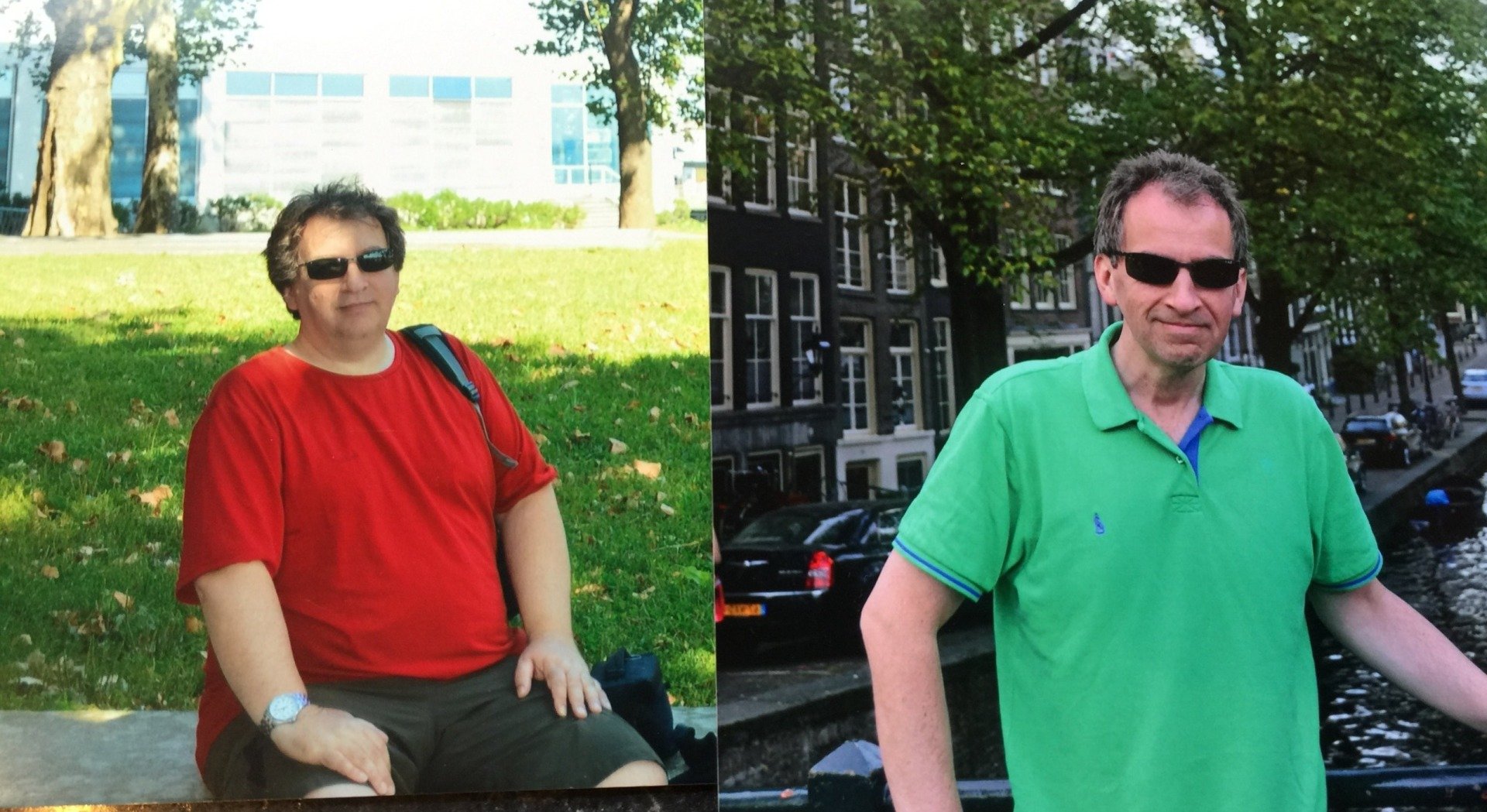Obesity and behaviour change : A personal view
The UK government has published its strategy on obesity. By applying a behaviour change model I plot my own journey from obesity to healthy weight
The UK government has published its strategy for tackling obesity. It includes a ban on junk food advertising before 9pm, the end of buy one get one free (bogof) offers on unhealthy foods, displaying calories on menus and a Better Health campaign to encourage people to eat less and be more active.
About one quarter of adults in the UK are obese with roughly another four in 10 overweight so it’s clear that a strategy is needed. But how do you get people to make a behaviour change that will not only start them on the journey to healthy weight but help them maintain it when they get there?
First off, I’m not going to summarise the literature on behaviour change and weight management interventions but if you are interested then the NICE website is a good place to start.
Instead, I’m going to draw upon my own experience and what motivated me. To do this I'm going to apply the Transtheoretical Model (TTM) of behaviour change to my situation. The TTM, developed in the 1970s by Prochaska and DiClemente, is widely used in market research and sets out a number of stages of change:
- Pre-contemplation - no intention to do anything or do not recognise that action is needed
- Contemplation - intend to do something in the foreseeable future
- Preparation - taking steps towards doing it
- Action - actually doing something about it
- Maintenance - keeping the behaviour going
- Termination - no intention to relapse into unhealthy behaviour
I was fat for about 20 years. I liked eating anything I wanted without restraint. At my heaviest (in August 2014) I weighed 18 ½ stones (117 kilos or 260 pounds). My Body Mass Index was 40 meaning that I was morbidly obese. Being fat was killing me. I felt ill most of the time, had no energy and was tired and irritable. I probably had type two diabetes or at the very least was at serious risk of it. Sugary foods and fizzy drinks were my medicine of choice. These gave me a short term fix but always left me craving more. Eating was an addiction for which I didn't want the cure.
On 1st September 2014 I decided enough was enough. Ten months later I had lost 7 stones (44 kilos or 98 pounds) to become healthy weight. What happened to make me go from Pre-contemplation to Action?
The scientific literature will tell you that personal motivators are hugely important in health behaviour change. Particularly important is the idea of autonomous motivation. This is when a change in behaviour is personally endorsed and engaged with. In other words, you do it through choice not because you think you should or ought to. The state cannot legislate or strategise for this. It can make bad behaviour harder (banning bogof) or good behaviour easier (listing meal calories in menus) but it can’t make people do things they don’t want to.
Moving to the Contemplation stage (intending to do something about it) and carrying this through to Action requires a personal motivation. Tom Watson, former Labour Party Deputy Leader, has said that wanting to be there in later life for his family motivated his dramatic weight loss. That’s also true for me. Others will have different motivations – it could be health, could be body image related, could be anything. The important thing is that getting to Preparation stage requires a personal motivation.
Having taken action, two things kept me going. The first was self-regulation. In the same way I made the decision to start weight loss I needed to make the decisions to implement the action and stick to it. Self-regulation for me was about having a daily calorie limit, eating more healthily, controlling portion size and doing exercise regularly. I stuck to the plan as if my life depended on it which it probably did.
The second important factor at this stage was setting goals and monitoring them. I set myself a target of losing 2lbs (one kilo) a week. That was my goal. I weighed myself weekly (frequent self-weighing is an important intervention) and charted my progress on an Excel file. I measured everything I could (I’m a quant researcher after all) – daily steps, weekly weight, distanced cycled and compared and contrasted against previous efforts.
Having a goal and frequent measurement of it is a really important weight loss intervention. I did this on my own but others like (or need) to be part of a group and have common goals and shared experiences. This is why weight loss classes can give people support to keep motivated.
What about Maintenance? What kept me going? The literature will tell you that having a more positive body image is a great motivator as is being determined to keep hold of the wins. I set myself another target. I read somewhere that only 1 in 1,200 formerly obese men stay healthy weight for five years. Most put the weight back on within 12 months of losing it. My motivation was that I wanted to be that 1 man in 1,200.
On 1st July 2020 I reached the five year healthy weight milestone. I celebrated with a bowl of trifle. I took a couple of spoonfuls, felt queasy and threw it away. Does that mean I’ve reached the final stage of the TTM known as Termination? This is when people have no desire to return to their unhealthy behaviour and are sure they will not relapse. The answer is: I don’t know. I hope so but for me losing weight was not about ‘going on a diet’ but about a complete lifestyle change that I know I have to adhere to for ever.
At this point I should say that my experience is just that: my own. I’m not saying that because I went from Pre-contemplation to Maintenance that everyone can. Far from it. There are a range of complex psychological and emotional issues around weight and body image and what worked for me won’t necessarily work for others. Some people celebrate their size and the body positive. That’s all good.
It should also be pointed out that deprivation and social inequality plays a significant part in health inequalities. The social, economic and environmental conditions in which people live have an impact on their health. So too do the commercial priorities of Big Food – deprived areas are much more likely to have fast food takeaways than non-deprived areas.
But for those who want to adopt a healthy lifestyle, government interventions will only take them so far. Losing weight is hard work and that is why much more education, nutritional advice plus tailored support and guidance is needed to help people through the stages to Action and beyond.










